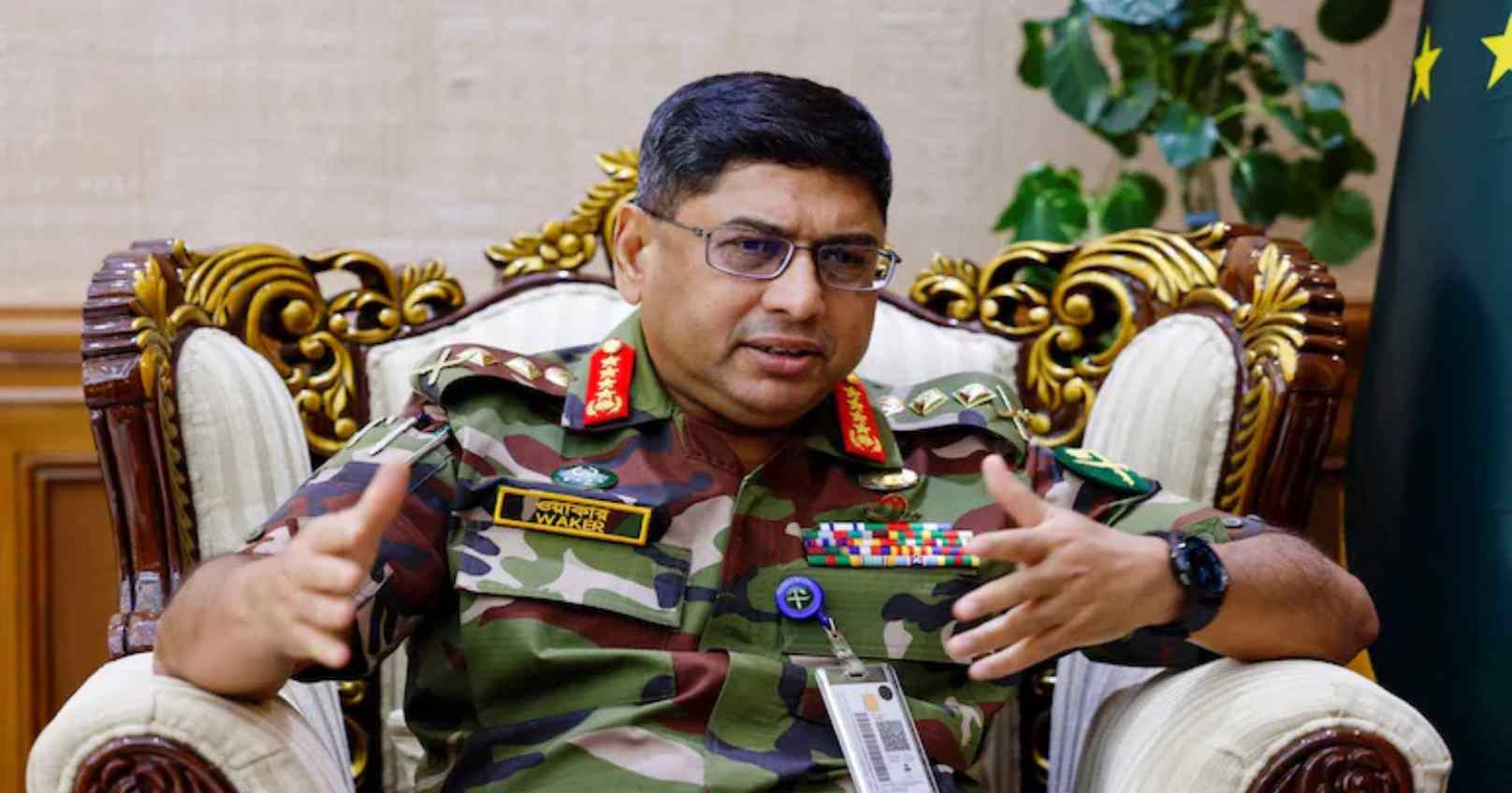Political Turmoil in Bangladesh: Coup Speculations, Military Meetings, and Rising Uncertainty
International International NewsPosted by NewAdmin on 2025-03-26 08:41:46 |
Share: Facebook | Twitter | Whatsapp | Linkedin Visits: 63

Speculation about a possible military coup in Bangladesh has been growing, fueled by reports of high-level army meetings and increased security measures. Chief Adviser Muhammad Yunus has dismissed these rumors as a "festival of rumours" and accused "defeated forces" of spreading misinformation to destabilize his administration. The reference to "defeated forces" is widely seen as an indirect attack on the ousted government of former Prime Minister Sheikh Hasina, who was removed from power following the July-August 2024 Uprising.
In a televised address on the eve of Bangladesh’s 53rd Independence Day, Yunus linked the spread of misinformation to the mass protests that led to Hasina’s fall. He argued that these rumors are being used as a political tool to challenge the legitimacy of his interim government. This year, in an unusual break from tradition, the government has decided to cancel the National Day military parade in Dhaka, though celebrations at the district level will continue. Additionally, Senior Secretary Nasimul Gani from the home ministry has suggested that the country remains in a "wartime mode," further adding to the sense of uncertainty.
Social media has been flooded with speculation about an imminent coup, particularly due to reports of army meetings and heightened military presence in Dhaka. General Waqar Uz Zaman, the Bangladesh Army Chief, has found himself at the center of these rumors. He has held multiple meetings with top officials over the weekend, reportedly discussing security concerns amid increasing extremism. His repeated warnings about the threat of terrorism and the deteriorating law-and-order situation have only intensified the coup speculations. However, Gani has dismissed the possibility of a declaration of emergency as mere gossip.
Sheikh Hasina’s government was overthrown on August 5, 2024, following large-scale student protests. At the time, Yunus was in France and returned to Bangladesh three days later to assume power as the interim leader. His tenure has faced significant challenges, with critics accusing his administration of empowering ultra-right and Islamist groups while marginalizing those who played a role in the country’s Liberation War. Many members of the Awami League, the party that led Bangladesh’s independence struggle, have been arrested or have gone into hiding, facing charges under the country’s International Crimes Tribunal. Meanwhile, opposition figures like Mirza Fakhrul Islam Alamgir of the BNP have accused Yunus’s administration of trying to erase the history of the 1971 Liberation War.
Amid these tensions, Asaduzzaman Fuad, the general secretary of the student-led Aamar Bangladesh Party (AB Party), has accused General Zaman of plotting with President Mohammed Shahabuddin to establish a new interim government. Fuad's remarks, which included strong rhetoric against the president, have fueled further unrest. There have been rumors of Fuad’s arrest, though the AB Party has denied these claims.
Adding to the uncertainty, a video of General Zaman from the previous month has resurfaced, in which he warned about rising political instability and urged unity to prevent chaos. In the speech, Zaman stated that he wanted to retire after ensuring the country was stable. His words have been interpreted in different ways, with some seeing them as a genuine call for peace while others believe they hint at the possibility of military intervention.
The situation in Bangladesh remains tense, with the government, opposition, and military all at the center of growing uncertainty. While Yunus insists that the coup rumors are baseless, the increased military presence and political turmoil suggest that the coming days may be crucial for the country’s stability.
Search
Categories
Recent News
- Andhra Pradesh's Zonal System: A Hurdle in District Formation
- Hyderabad's Traffic Wings Get a Boost with IPS Officer Reshuffle
- Uncovering the Golden Scheme: I-T Raids Expose Bullion Trading Secrets
- Big Tech's Child Safety Crisis: Australia Sounds the Alarm
- Blue Cloud Softech's $150M Edge AI Chip Venture
- Nuclear Diplomacy Revived: US and Iran Resume Talks
- Curiosity Illuminates Mars: Unveiling the Red Planet's Night Secrets
- Telangana's Cybercrime Conclave: AI Takes Centre Stage
Popular News
- Navigating IPO Market Dynamics Amid Volatility and Regulatory Changes
- Massive Worldwide Microsoft Outage Disrupts Multiple Sectors
- Panjapur Bus Stand to Reshape TNSTC Routes
- తెలుగుదేశం పార్టీ - పేదరికాన్ని నిర్మూలించడంలో వాగ్దానం
- Universities Embrace Remote Learning Technologies Amidst Ongoing Pandemic